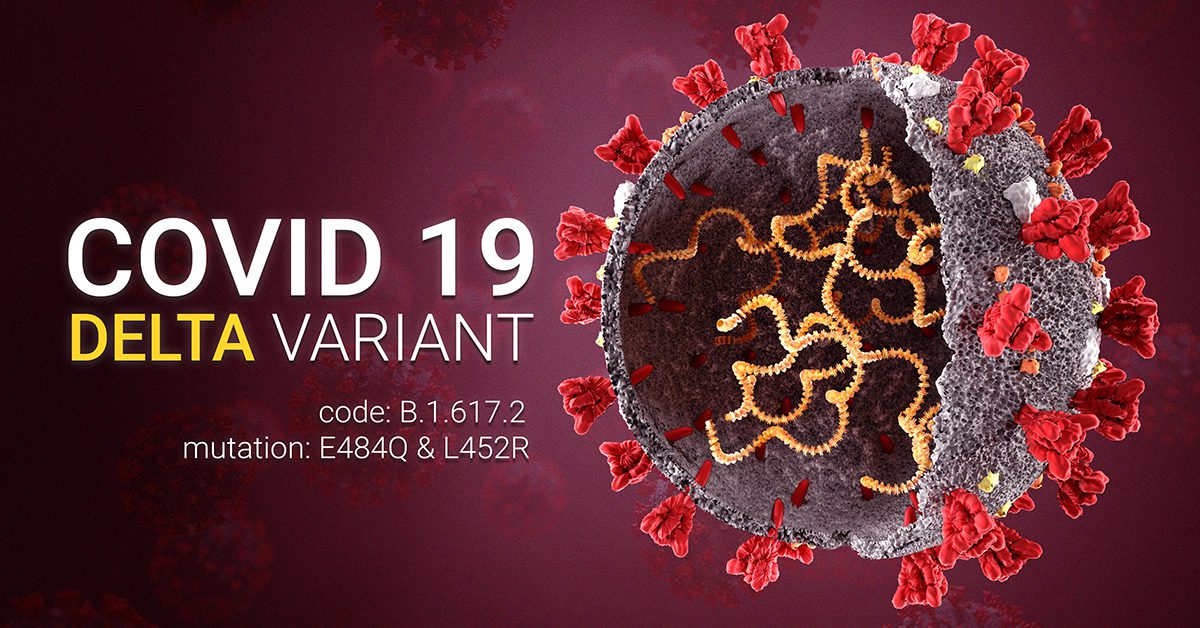
U.S. health experts have identified an emerging strain of the coronavirus known as the Delta variant. It was first seen in India, but has quickly moved across the globe. Experts predict it will soon be the dominant strain in the United States, already accounting for 10% of U.S. coronavirus cases.
The good news is that existing COVID-19 vaccines seem to work well against the variant—drastically reducing the likelihood of hospitalization for vaccinated individuals.
The bad news is that over 50% of the U.S. population has not been fully vaccinated. As a result, these individuals face serious risks, particularly as the Delta variant has shown to be more transmissible and may cause more severe illness.
”I'm worried about those who are unvaccinated.
- U.S. Surgeon General Vivek Murthy
As more states lift COVID-19 restrictions, unvaccinated individuals will have virtually no protection against the Delta variant or other coronavirus strains.
Health experts are concerned that this may lead to another influx of coronavirus cases, inundating health systems worse than they did in 2020.
What’s Next?
For fully vaccinated individuals, continue following guidance from the Centers for Disease Control and Prevention (CDC). Generally, life can slowly return to pre-pandemic normalcy for these people.
Unvaccinated individuals, or those who’ve only received one dose of vaccine, should strongly consider getting fully vaccinated. Failing to do so can lead to serious health consequences later in the year when cases are expected to increase.
Employers looking to maintain uninterrupted operations this fall may want to encourage vaccinations among their employees.
